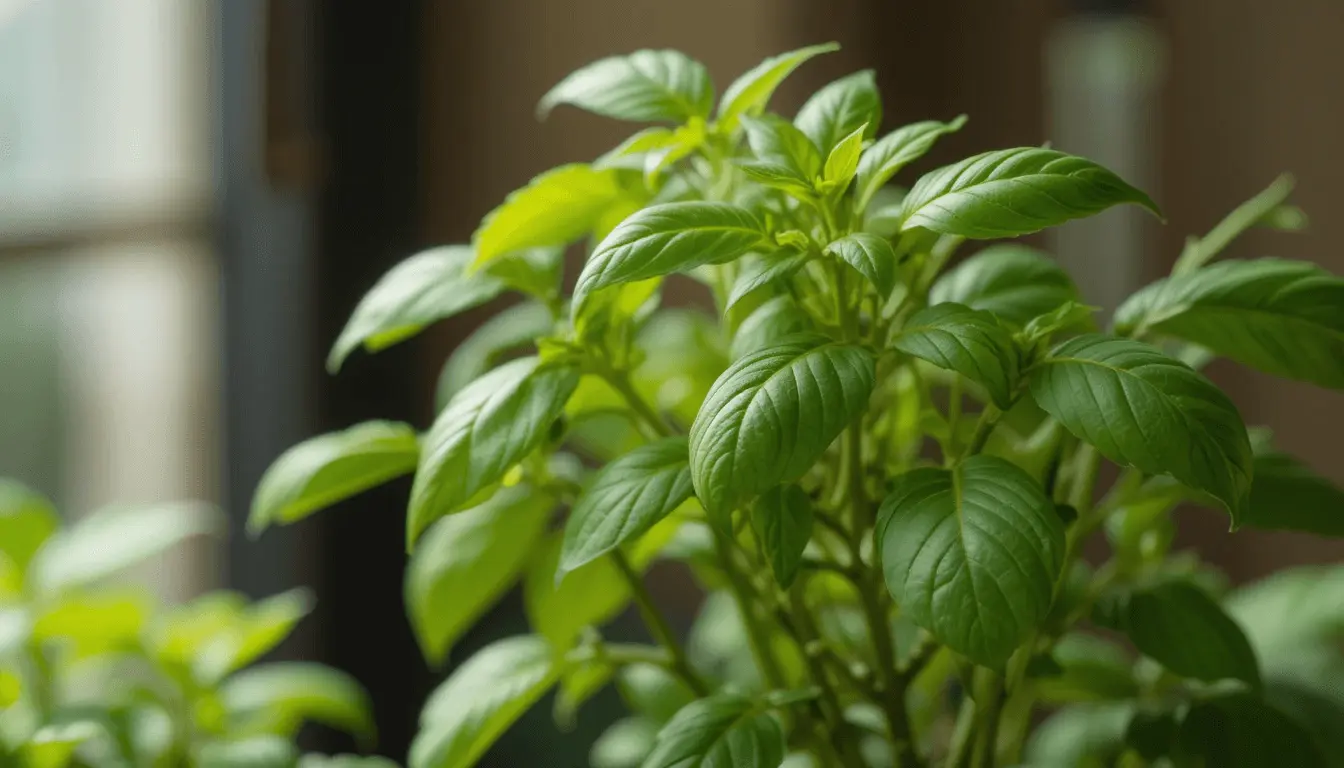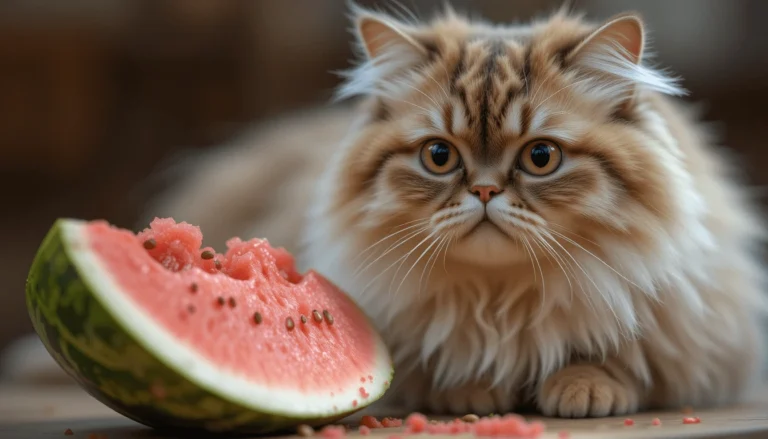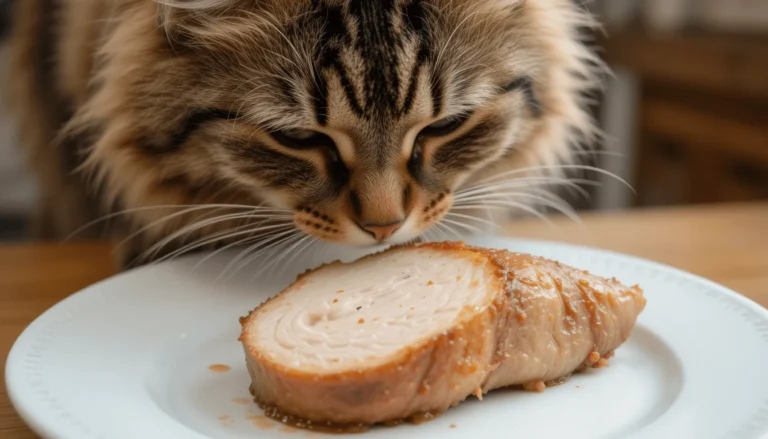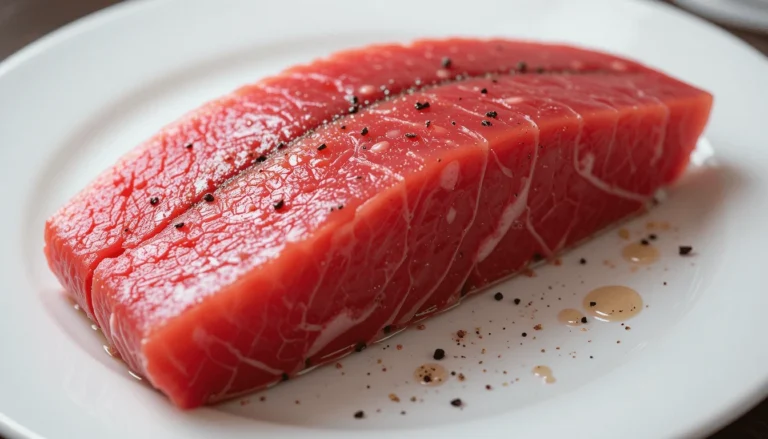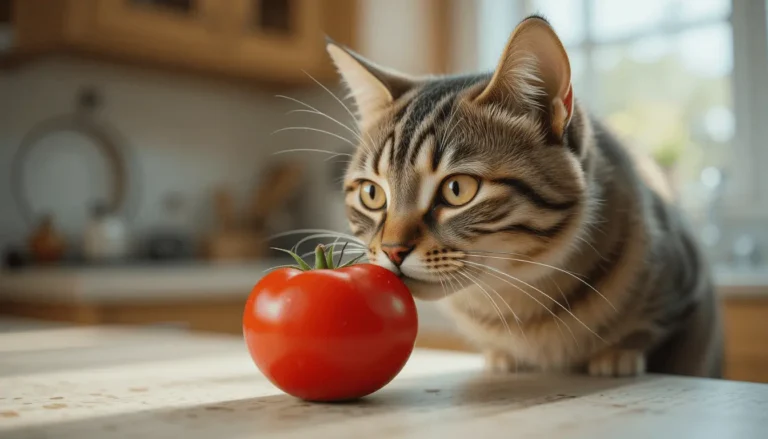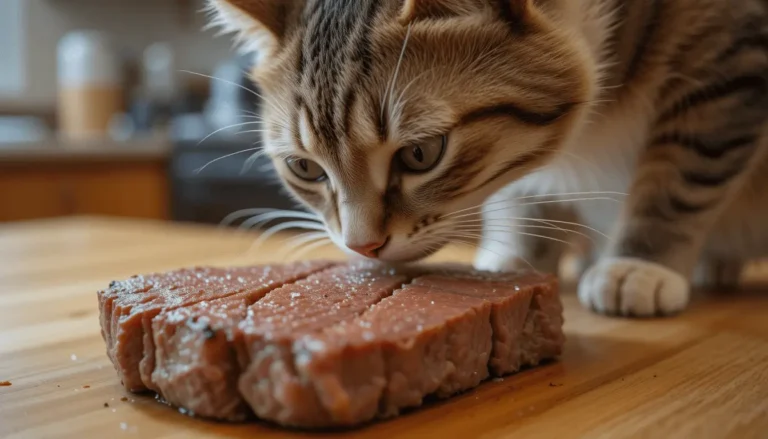Can Cats Eat Basil ? Safety, Benefits, and Risks Explained
Introduction
Picture this: You’re chopping fresh basil for a homemade pasta sauce when suddenly, your feline friend leaps onto the counter, whiskers twitching with interest. Before you can react, they take a curious sniff—or worse, a nibble—of those fragrant green leaves. As a cat lover, your first thought is: “Wait… can cats eat basil?”
You’re not alone in wondering. Many pet owners question whether common kitchen herbs, like basil, pose any risks to their furry companions. The good news? According to the ASPCA’s toxic plant database, basil is non-toxic to cats. But before you let your kitty chow down on your herb garden, there’s more to consider—like potential benefits, risks, and safer alternatives.
Is Basil Safe for Cats? What Science Says
If your cat sneaks a bite of basil, don’t panic—but don’t assume it’s harmless, either. Here’s what research and veterinarians say:

Fresh Basil vs. Dried Basil: Which Is Safer?
- Fresh basil leaves are generally safe in small amounts, as confirmed by the ASPCA. However, cats lack the enzymes to digest plant matter efficiently, so too much can cause mild stomach upset.
- Dried basil is more concentrated but still low-risk if ingested sparingly. Avoid basil essential oils, though—they’re too potent and may cause liver issues, per Pet Poison Helpline.
How Much Basil Can Cats Eat?
While not toxic, basil shouldn’t be a regular treat. Vets recommend:
- A tiny piece (¼ of a leaf) occasionally as a curiosity-satisfier.
- No more than once a week to avoid digestive irritation.
Transition: If your cat seems obsessed with greens, consider cat grass (wheatgrass) as a safer alternative—it’s digestible and aids hairball control (Cornell Feline Health Center).
Signs of Basil Sensitivity in Cats
Though rare, watch for:
Mild symptoms: Drooling, vomiting, or diarrhea (usually resolves in 24 hours).
Severe reactions: Lethargy, tremors, or difficulty breathing (seek vet care immediately).
Potential Benefits of Basil for Cats (And the Caveats)
Could basil actually be good for your cat? In theory, yes—but with major limitations.
Antioxidant and Anti-Inflammatory Properties
Basil contains flavonoids and polyphenols, which have antioxidant effects in humans. However, cats are obligate carnivores, meaning their bodies aren’t designed to extract nutrients from plants efficiently (National Research Council, 2006).
Translation: Don’t rely on basil for health benefits—high-quality cat food provides all the nutrients they need.
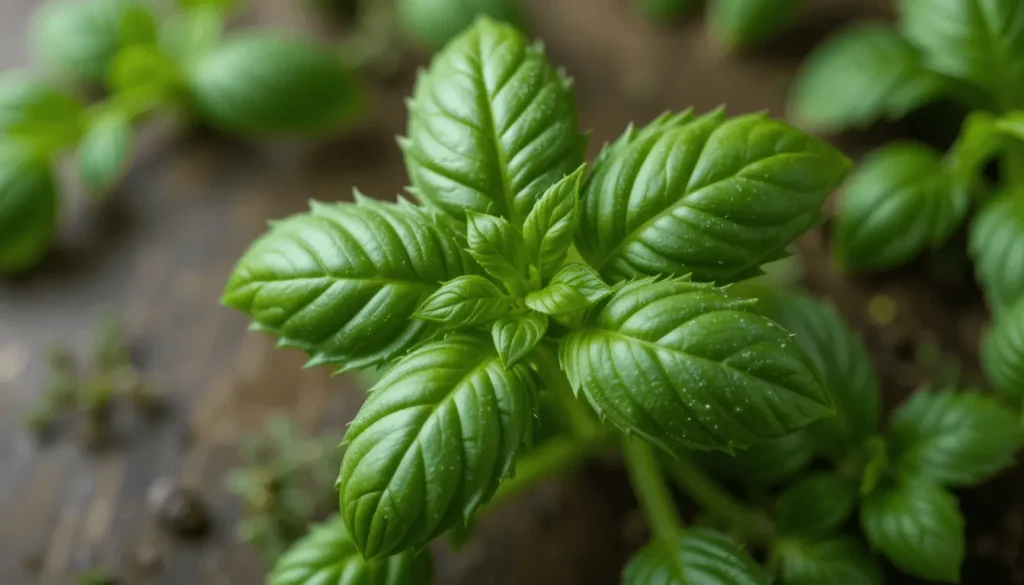
Digestive Aid or Just a Gimmick?
Some holistic vets suggest basil may help with mild bloating due to its carminative properties. But there’s no scientific proof it aids feline digestion. If your cat has chronic GI issues, consult your vet before experimenting.
Mental Stimulation: The “Herb Enrichment” Factor
Many cats are intrigued by the smell and texture of herbs like basil. Offering a single leaf to sniff or bat around can provide sensory enrichment—just remove it before they eat too much!
Transition: For cats that love greens, catnip or cat grass are safer, more engaging options (International Cat Care).
Risks and Precautions When Feeding Basil to Cats
While basil isn’t toxic, there are still important safety measures every cat owner should know.
Essential Oils and Concentrated Basil Products Are Dangerous
- Basil essential oil is a major red flag. According to Pet Poison Helpline, essential oils can cause liver damage, respiratory distress, or neurological issues in cats due to their high concentration.
- Avoid basil-flavored human foods, as they may contain garlic, onions, or excess salt—all toxic to cats.
Pesticides and Herbicides on Store-Bought Basil
- Non-organic basil may carry chemical residues. Always wash thoroughly or opt for home-grown basil in a cat-safe environment.
- If growing your own, keep it out of reach—some cats love digging in soil, which can lead to accidental overconsumption.
Allergic Reactions and Sensitivities
Though rare, some cats may experience:
- Skin irritation (excessive scratching)
- Gastrointestinal upset (vomiting, diarrhea)
- Lethargy or drooling (indicates possible essential oil exposure)
When to Call the Vet
Seek immediate help if your cat shows:
Difficulty breathing (possible essential oil inhalation)
Persistent vomiting or diarrhea (risk of dehydration)
Uncoordinated movements or tremors (neurological concern)
Conclusion: So, Can Cats Eat Basil? The Final Verdict
In short: Yes, cats can eat basil in tiny amounts—but they don’t need to. While it’s not toxic, the benefits are minimal, and the risks (like essential oil exposure or pesticides) mean it’s best left as an occasional curiosity rather than a treat.
For feline-friendly greens, stick to cat grass or catnip—your kitty will thank you! And remember: When in doubt, ask your vet before introducing new foods.
Final thought: Has your cat ever stolen a bite of basil? Share their funniest food-snatching moments in the comments! 
“Looking for more cat-safe fruits? Check out our guide on Safe Or Not ? for another hydrating snack option.”
FAQs About Cats and Basil
Can kittens eat basil?
No. Kittens have more sensitive digestive systems, and even non-toxic herbs can cause stomach upset. Stick to kitten-formulated food until they’re older.
Is basil in commercial cat food safe?
Yes—if it’s listed as a minor ingredient in vet-approved cat food. But avoid adding extra basil to their meals.
What herbs are toxic to cats?
Avoid these dangerous herbs:
Garlic, chives, leeks (cause anemia)
Mint (can irritate the stomach)
Oregano, marjoram (high essential oil content)
For a full list, check the ASPCA’s toxic plant database.
What’s a safer alternative to basil for cats?
Try cat grass (wheatgrass) or catnip—they’re digestible and enriching

